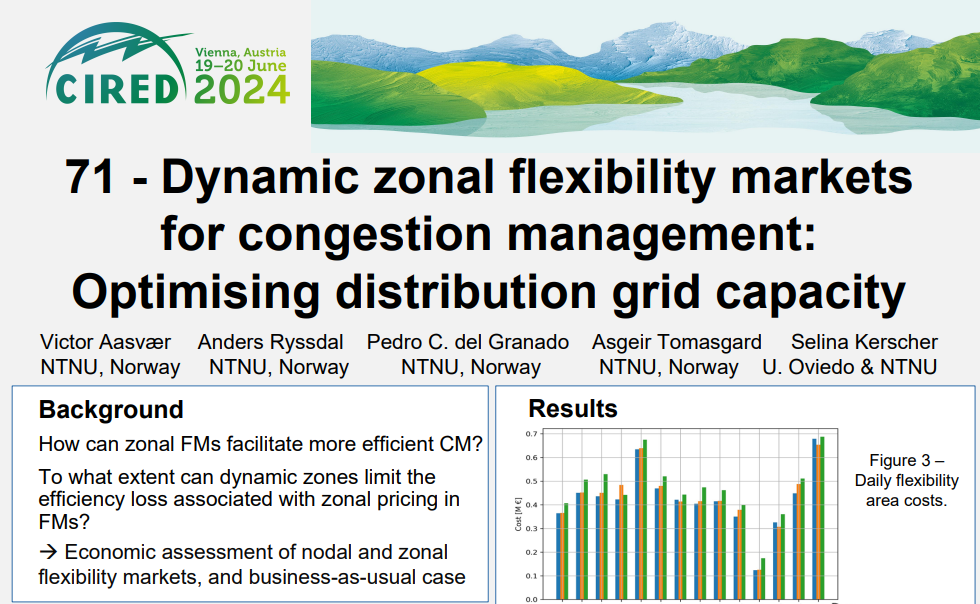Knowledge Gaps

Publications
Here you will find access to public documentation developed throughout the PowerDig project.
Peer-Reviewed Papers
Flexibility Characterization, Aggregation, and Market Design Trends with a High Share of Renewables: a Review
NTNU; SINTEF
Digital Energy Platforms Considering Digital Privacy and Security by Design Principles
NTNU; ODU
Consequences of Uncertainty from Intraday Operations to a Capacity Expansion Model of the European Power System
NTNU; SINTEF
Value stacking flexibility services in neighborhoods participating in fast frequency reserve markets
NTNU; SINTEF
Flexibility Characterization, Aggregation, and Market Design Trends with a High Share of Renewables: a Review
NTNU; SINTEF
Effects of end-user participation under a TSO-DSO coordination scheme for Norway
NTNU
Dynamic Zonal Flexibility Markets for Congestion Management: Optimising distribution grid capacity
NTNU; UNIOVI
TSO-DSO Coordination under Wind and Solar Power Uncertainty: A Two-Stage Stochastic Programming Approach
NTNU
Congestion Management Based on Power-to-Gas Opportunities and Challenges in European Electricity Markets
NTNU; TU Berlin
MSc/PhD Thesis (ongoing or completed)
Designing a Zonal Flexibility Market and Modelling Strategic Behaviour in Combination with the Intraday Market: Combining Optimization and Machine Learning Approaches
MSc Thesis
Aasvær, Victor Sætre; Ryssdal, Anders Strand
A Novel Flexibility Market: Leveraging Distributed Energy Resources to Balance Wind Power Forecast Errors
MSc Thesis
Rognes, Henrik
A bilevel model to study the market power of a strategic wind power producer in the Norwegian discrete intraday market
Ongoing MSc Thesis
Ter Laak, Wessel
Implementing Low-Emission Hydrogen in Norway: A Techno-Economic Analysis of Production, Investments, and Interplay with the Power System
Ongoing MSc Thesis
Svendsmark, Erik
Short Term Electricity Markets – Operation and Design under Uncertainty
Ongoing PhD Thesis
Seifert, Paul
The roles and impacts of active end-users and DSOs during the transition towards smart distribution grids
Ongoing PhD Thesis
Yen, Dung Bai
Dissemination
Here you will find our different dissemination activities developed throughout the PowerDig project.

Modeling Intraday Trading in Norwegian Power Market
Presented at: Power Market Workshop, Energy Transition Week 2024, Trondheim, Norway.

Optimising distribution grid capacity
Presented at: Increasing Distribution Network Hosting Capacity Workshop, CIRED 2024, Vienna, Austria.
